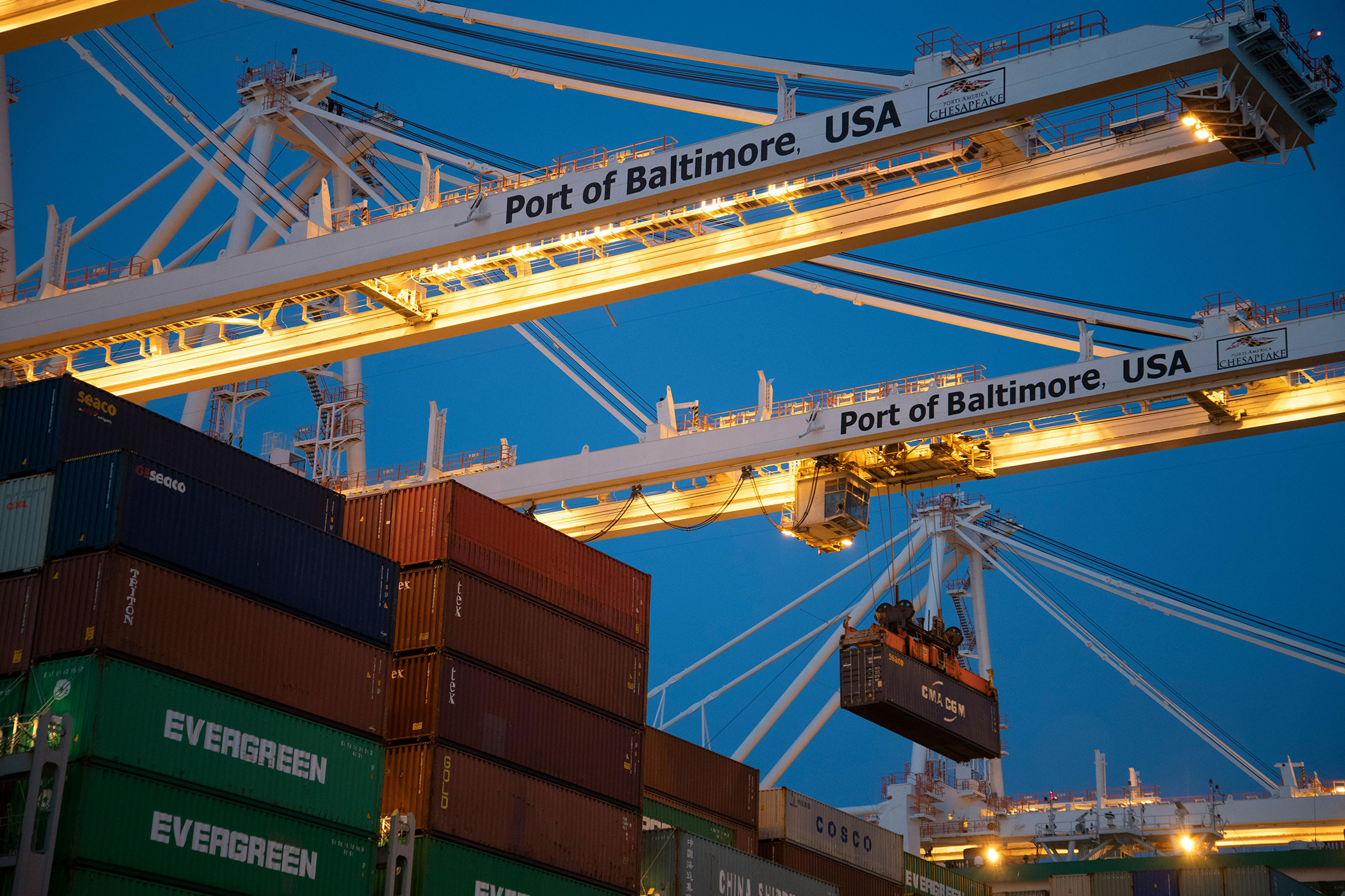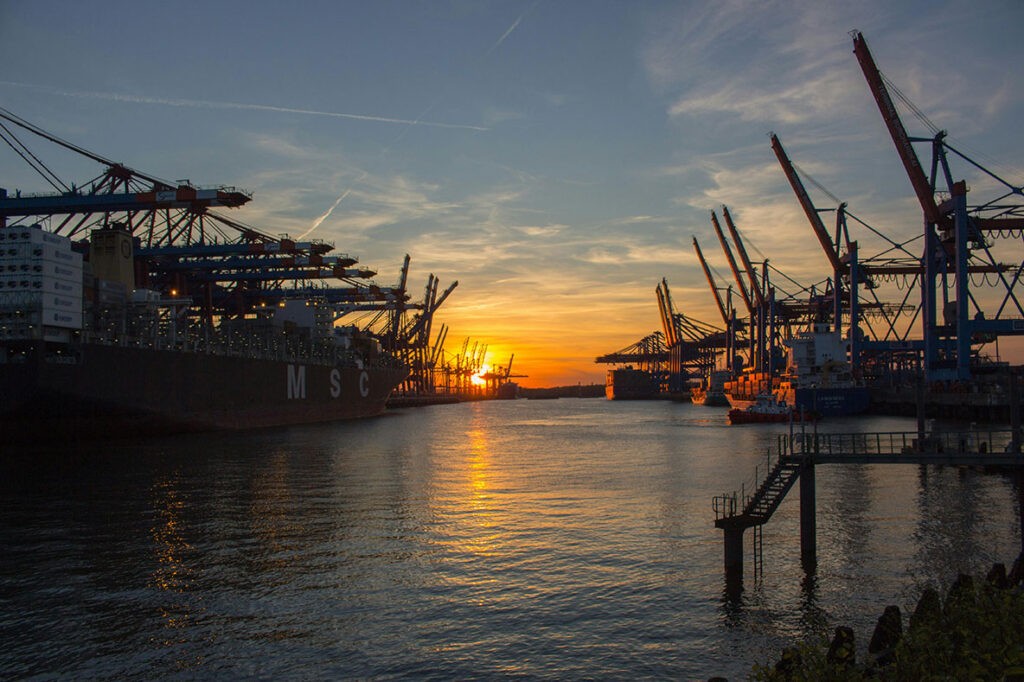Businesses now rely heavily on efficient logistics to keep operations running smoothly. Among the logistics models available, third-party logistics (3PL) and contract logistics are two widely adopted frameworks. While often used interchangeably, they represent distinct approaches to managing supply chain functions. Understanding the difference between contract logistics and 3PL is crucial for companies looking to optimize their operations.
Here’s what each model can offer, outlining their services, strengths, and scenarios where each excels.
Table of Contents
Key Takeaways✔ 3PL is designed for task-specific logistics activities, while contract logistics manages the supply chain from end to end. ✔ 3PL providers operate with minimal commitment in a vendor-client setup, whereas contract logistics forms strategic, deeply integrated partnerships. ✔ 3PL is best for short to mid-term logistics needs, while contract logistics is structured for long-term engagements. ✔ 3PL delivers standardized services for quick deployment, but contract logistics offers fully customized solutions based on business needs. ✔ 3PL typically uses optional or modular technology tools, unlike contract logistics, which requires full system integration with client platforms. ✔ 3PL services are billed on a flexible, pay-as-you-go basis, while contract logistics often follows a value-driven, performance-based pricing model. ✔ 3PL enables rapid scaling and fast setup, whereas contract logistics takes more time but ensures deeper operational alignment. ✔ 3PL is a better fit for startups and growing businesses, while contract logistics is ideal for large enterprises with complex supply chains. |
What Is Third-Party Logistics (3PL)?
Third-party logistics, or 3PL, refers to the outsourcing of logistics activities to an external provider. These activities are often standardized and focused on execution rather than strategic oversight. 3PL companies support the movement and storage of goods, acting as a vital link between manufacturers and customers.
Third-party logistics offers increased flexibility by lowering distribution and warehousing costs. It is also the most widely used model in the logistics industry, allowing businesses to concentrate on their core operations.
Core Functions of 3PL Providers
3PL services cover a range of operational logistics tasks:
- Transportation Management: Handles domestic and international freight via road, air, rail, or sea, often with real-time tracking and freight rate optimization.
- Warehousing and Storage: Offers shared or dedicated warehousing facilities that allow businesses to store inventory without investing in infrastructure.
- Inventory Management: Utilizes software systems to monitor stock levels, reduce overstocking, and streamline reordering processes.
- Order Fulfillment: Includes picking, packing, labeling, and shipping products directly to customers on behalf of the business.
- Returns Processing (Reverse Logistics): Manages the return and restocking of items, an essential service for e-commerce and retail sectors.
Who Benefits Most from 3PL?
3PL is especially valuable to businesses that prioritize speed, simplicity, and cost-efficiency:
- Startups and SMEs: Gain logistics capabilities without heavy capital investment or large teams.
- e-commerce and DTC Brands: Leverage 3PL to scale operations quickly during peak demand or rapid growth phases.
- Retailers with Seasonal Fluctuations: Adapt capacity based on seasonality without locking into long-term infrastructure.

Key Advantages of 3PL in Practice
When businesses partner with a third-party logistics (3PL) provider, they gain more than just help with shipping. The real value comes from the practical, day-to-day benefits.
- Speed to Market: Providers have established systems and networks, which means new clients can go live in weeks instead of months.
- Reduced Risk: Without long-term binding contracts, businesses can test providers, pivot strategies, or switch vendors with minimal financial risk.
- Technology Access: Many 3PL companies offer cloud-based dashboards, real-time tracking, and analytics, without requiring the client to purchase or manage these systems.
- Compliance and Documentation: 3PL providers often handle customs, carrier contracts, and freight compliance, simplifying international shipping or multi-state logistics.
Limitations to Consider
While 3PL offers speed and flexibility, it’s important to acknowledge its boundaries:
- Limited Customization: Services are typically pre-defined, which may not suit complex or niche operations.
- Less Strategic Alignment: Unlike contract logistics, 3PL providers usually don’t participate in long-term planning or supply chain design.
How It Compares
A key difference between contract logistics and 3PL is the level of integration. 3PL providers focus on execution and efficiency, while contract logistics emphasizes strategic partnership and customization.
The global third-party logistics (3PL) market has seen significant growth in recent years, driven by the rapid rise of e-commerce and shifting consumer expectations for faster delivery and higher product quality. This evolving demand has accelerated the reliance on 3PL services to meet modern fulfillment standards.
What Is Contract Logistics?
Contract logistics is a holistic, long-term approach to supply chain management. Rather than just handling shipments or storage, contract logistics providers take responsibility for planning, executing, and continuously optimizing complex logistics functions.
Core Characteristics of Contract Logistics
Contract logistics goes far beyond transactional services. It is built on collaboration, integration, and customization:
- End-to-End Supply Chain Management: Manages everything from inbound raw materials to outbound distribution, often covering procurement, manufacturing support, and final-mile delivery.
- Long-Term Partnerships: Typically involves multi-year agreements with deep operational alignment, designed for sustained efficiency and performance improvement.
- Dedicated Infrastructure: Providers may invest in dedicated warehouses, fleets, or technology platforms specific to a client’s operations.
- Integrated Technology Solutions: Full integration with enterprise systems like ERP, WMS, and TMS enables real-time visibility and analytics across the entire supply chain.
- Performance-Based KPIs: Contracts often include service level agreements (SLAs) and continuous improvement targets tied to metrics such as delivery times, inventory turnover, or error rates.
Who Should Use Contract Logistics?
This model is ideal for companies with intricate supply chains and a need for high-touch service:
- Multinational Corporations: Require seamless coordination across multiple regions, compliance environments, and transportation modes.
- Industries with High Regulatory or Quality Demands: Sectors like pharmaceuticals, aerospace, and food logistics benefit from strict quality control and traceability.
- Businesses Undergoing Digital Transformation: Leverage contract logistics to modernize outdated systems and improve supply chain transparency.
Key Benefits of Contract Logistics in Practice
In practice, this approach brings a range of practical advantages that help streamline operations, improve service levels, and support long-term growth.
- Dedicated Assets and Resources: Providers often allocate exclusive warehousing space, fleets, and management personnel to ensure consistent service and performance.
- Strategic Supply Chain Alignment: Logistics processes are not just managed—they’re continuously improved to meet evolving business goals.
- Performance-Based Accountability: Contracts often include detailed KPIs and SLAs to track delivery accuracy, efficiency, inventory turnover, and other critical metrics.
- Advanced Integration and Automation: With full IT integration, contract logistics enables automated workflows, predictive analytics, and real-time decision-making.
- Resilience and Risk Management: By aligning closely with client systems and planning cycles, providers can anticipate disruptions and mitigate risks before they impact service levels.
Limitations to Consider
While powerful, contract logistics may not be suitable for all business types:
- Higher Initial Investment: The cost of developing customized systems and infrastructure can be significant.
- Longer Setup Time: Implementation may require months of planning, integration, and testing before full deployment.
- Less Flexibility for Smaller Firms: Smaller or fast-changing businesses may find it harder to commit to fixed terms or predict long-term needs.
How It Compares
In the contract logistics vs 3PL comparison, contract logistics delivers greater strategic alignment, integration, and control. It is not just a service—it’s a collaborative extension of the client’s supply chain team.

Key Differences Between Contract Logistics and 3PL
To better understand the difference between contract logistics and 3PL, the following breakdown highlights how each model serves different operational needs:
|
Aspect |
3PL |
Contract Logistics |
|
Service Scope |
Task-based, efficient execution of logistics |
Comprehensive, end-to-end supply chain design |
|
Relationship |
Vendor-client, minimal commitment |
Strategic partnership with deeper collaboration |
|
Duration |
Short to mid-term agreements |
Long-term contractual engagement |
|
Customization |
Standardized solutions for quick implementation |
Highly tailored, client-specific systems |
|
Technology |
Optional, modular integrations |
Full technology integration with client systems |
|
Pricing |
Flexible, pay-per-use or service-based billing |
Performance-based, often value-driven pricing |
Why Many Businesses Prefer 3PL
The contract logistics vs 3PL comparison reveals that 3PL offers a clear advantage for businesses looking for fast, flexible, and cost-effective logistics solutions. Unlike contract logistics—which may require a long ramp-up period and high customization—3PL is designed for immediate impact and operational simplicity.
While contract logistics excels in highly complex, large-scale environments, 3PL remains the most practical, scalable, and accessible logistics model for businesses that value speed, adaptability, and control over costs. Understanding the difference between contract logistics and 3PL can help leaders choose a model that matches their growth stage, industry, and strategic priorities.
Here’s why 3PL often wins out, especially for small to mid-sized businesses:
- Plug-and-Play Capability: Businesses can get started quickly with minimal setup, using tried-and-tested systems already in place.
- Cost Predictability: With pay-per-service pricing, companies only pay for what they use—ideal for managing budgets and seasonal demand.
- Operational Agility: 3PL providers are built to scale up or down with business needs, making them excellent partners in volatile markets or high-growth phases.
- Ease of Transition: Switching between 3PL providers is typically simpler than restructuring a long-term contract logistics setup.
When to Choose 3PL
In the contract logistics vs 3PL comparison, 3PL consistently stands out for businesses that demand speed, flexibility, and simplicity. It allows companies to stay nimble, competitive, and efficient in dynamic markets, without the overhead of a fully integrated supply chain partnership.
Scenarios Where 3PL Is the Ideal Fit
- Rapid Growth or Market Entry: 3PL enables fast setup and execution, which is crucial for startups or businesses expanding into new regions or channels. No need to build infrastructure from scratch.
- Seasonal or Fluctuating Demand: Companies with peak seasons, such as holidays or promotional events, can easily scale services up or down without long-term adjustments to their internal teams.
- Limited In-House Logistics Capabilities: Small and medium-sized businesses often lack the resources to manage warehousing, shipping, and fulfillment in-house. 3PL fills that gap instantly.
- Focus on Core Competencies: By outsourcing logistics, companies can reallocate time and energy to marketing, sales, product development, or customer service.
- Multi-Channel Fulfillment Needs: Businesses operating across eCommerce platforms, physical stores, and B2B channels benefit from 3PL providers’ ability to fulfill orders across multiple sales touchpoints.
- Tight Budget Constraints: 3PL offers cost-effective access to advanced logistics infrastructure without the upfront capital investment required in contract logistics setups.

When to Choose Contract Logistics
Contract logistics is the preferred solution for businesses that require deep integration, long-term planning, and comprehensive control over their supply chain. It goes beyond execution to become a strategic extension of the organization.
When evaluating the difference between contract logistics and 3PL, contract logistics is the right choice for companies that value control, consistency, and long-term operational excellence. It transforms logistics from a tactical necessity into a strategic asset.
Scenarios Where Contract Logistics Is Most Effective
- Complex, Multi-Stage Supply Chains: Ideal for operations that span multiple suppliers, production stages, or international boundaries, where coordination and visibility are critical.
- High-Value or Regulated Products: Industries such as healthcare, aerospace, and automotive benefit from the strict quality control, documentation, and compliance that contract logistics offers.
- Customized Distribution Requirements: Businesses with specific packaging, labeling, or handling needs require services that are tailored—not templated—which contract logistics can deliver.
- Stable, Predictable Demand: Companies with long-term volume stability can maximize value from fixed infrastructure and integrated systems by entering into multi-year partnerships.
- Digital Supply Chain Initiatives: Organizations undergoing digital transformation often use contract logistics to implement advanced systems like real-time monitoring, AI-driven forecasting, and IoT tracking.
7 Factors to Consider When Deciding Between the Two
Understanding the contract logistics vs 3PL debate through these lenses empowers decision-makers to choose a model that fits not just today’s operations, but also tomorrow’s ambitions. Ultimately, the difference between contract logistics and 3PL centers on whether speed and simplicity or integration and strategy will drive your supply chain success.
1. Business Size and Operational Complexity
- 3PL is ideal for lean organizations or those with straightforward logistics needs. It provides agility and simplicity.
- Contract logistics suits enterprises with complex, multi-channel operations requiring specialized handling, scheduling, and control.
2. Growth Trajectory
- Companies with unpredictable or fast-paced growth benefit from starting with 3PL due to its flexibility.
- Organizations with a clear, stable growth plan may transition to contract logistics to support scaling with structure and efficiency.
3. Level of Customization Required
- If standard warehousing, shipping, and fulfillment services suffice, 3PL is more than adequate.
- If logistics must be tailored to specific SKUs, processes, or compliance needs, contract logistics is better equipped.
4. Budget and Cost Structure
- 3PL offers lower upfront costs, pay-as-you-go pricing, and fewer long-term obligations.
- Contract logistics requires more investment upfront but offers long-term savings through optimized processes and volume handling.
5. Technology Demands
- 3PL often includes basic dashboards or limited integrations—suitable for businesses not ready to overhaul systems.
- Contract logistics can integrate deeply with ERP, WMS, and TMS platforms, offering data-driven optimization and full visibility.
6. Customer Experience Goals
- Businesses that prioritize speed, low shipping costs, or fast fulfillment often benefit from 3PL’s streamlined workflows.
- Brands promising white-glove delivery, consistent packaging, or industry-specific standards may require contract logistics precision.
7. Control vs Flexibility
- 3PL offers greater flexibility and ease of switching providers, making it less risky for businesses still testing their logistics strategy.
- Contract logistics offers more control and alignment, but less flexibility once the partnership is in place.
Frequently Asked Questions
No, contract logistics and 3PL are not the same, although they are closely related. 3PL (third-party logistics) refers to outsourcing specific logistics functions like warehousing or transportation on a transactional basis. In contrast, contract logistics involves a long-term, strategic partnership where the provider manages a broader portion—or the entirety—of a company’s supply chain.
Contract logistics is a comprehensive logistics service where a provider manages an entire supply chain or significant parts of it under a long-term contract. This may include warehousing, transportation, inventory management, technology integration, and performance tracking. It is ideal for businesses that need a customized, strategic logistics solution tailored to their specific operational goals.
Another common name for 3PL is “third-party logistics provider.” It refers to a company that performs outsourced logistics services for other businesses, typically including warehousing, shipping, and fulfillment. The term is often used interchangeably with fulfillment providers or logistics outsourcing firms, especially in the e-commerce and retail sectors.
The main types of logistics include inbound logistics, outbound logistics, reverse logistics, and third-party (3PL) or fourth-party (4PL) logistics. Inbound logistics involves the movement of goods and materials into a business, while outbound logistics deals with delivering products to customers. Reverse logistics focuses on returns and recycling, and 3PL or 4PL providers handle outsourced logistics operations at different levels of integration and control.
Yes, logistics includes storage as a core component, typically in the form of warehousing. Effective storage ensures that goods are held safely and efficiently until they are needed for distribution or production. Logistics also manages the organization, tracking, and movement of those goods within the storage facility and beyond.
 Partner with 3PL Logistics By Best for Efficient Logistics in New York City!
Partner with 3PL Logistics By Best for Efficient Logistics in New York City!
If you’re a business owner in New York City seeking fast, reliable, and scalable logistics, now is the time to act. 3PL Logistics By Best offers flexible third-party logistics solutions tailored to meet the needs of growing companies across the NYC area. Whether you’re managing seasonal demand, expanding your e-commerce operations, or simply need expert fulfillment services, 3PL Logistics By Best delivers the speed, simplicity, and efficiency your supply chain needs.
Don’t settle for outdated systems or inflexible contracts. Work with 3PL Logistics By Best in New York City and experience the agility and performance that today’s businesses demand.
Contact us today to build a logistics solution that moves with you!

